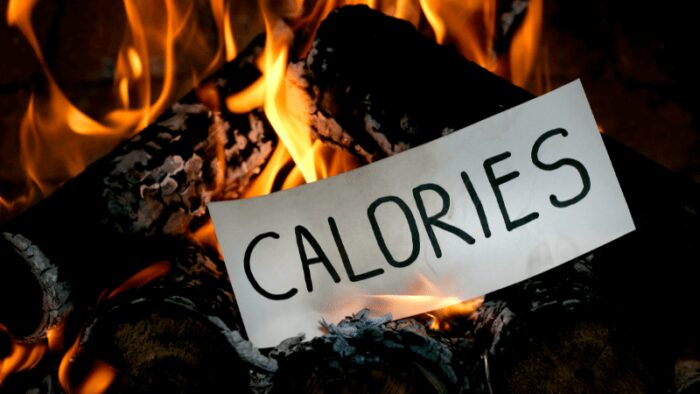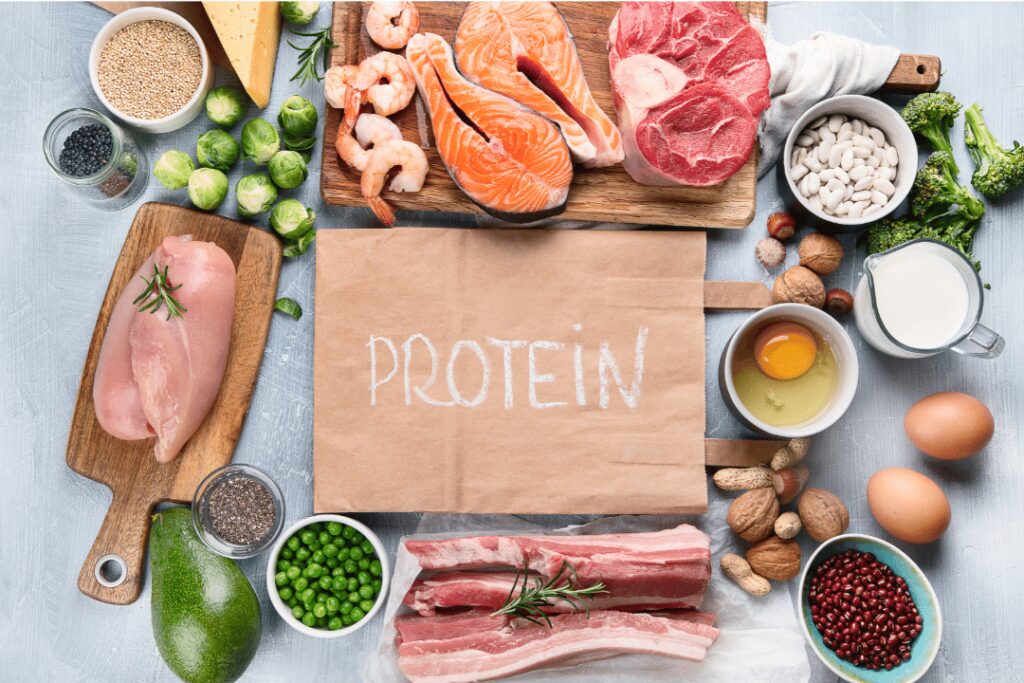How To Safely And Effectively Create A Calorie Deficit For Weight Loss
When you are trying to create a calorie deficit for weight loss, there are a few things that you need to keep in mind.
First, make sure that you are eating healthy foods and avoiding processed foods.
Second, make sure that you are getting enough protein and fiber, both of which will help you feel full and satisfied.
Third, make sure that you are exercise regularly. All of these things will help you lose weight safely and effectively.
What Is A Calorie Deficit?

A calorie deficit is when you eat less calories than your body needs to maintain its current weight.
When you consistently consume fewer calories than the amount of energy that you burn, your body begins to lose weight in order to supply itself with enough energy for survival.
By eating a healthy diet of mostly fruits, fibrous vegetables, lean proteins, and whole grains, you are giving your body the proper nutrients that it needs to function properly while losing weight.
How Do I Create A Calorie Deficit?
Creating a calorie deficit can be achieved by eating fewer calories than your body needs to maintain its current weight or by increasing the amount of exercise that you do.
It is important to keep in mind that you should not create a calorie deficit faster than 2-3 pounds per week, because this could produce the loss of muscle mass rather than fat.
If your goal is to lose weight quickly, your best option would be to try intermittent fasting with an exercise plan that includes weight training and cardio.
If you want to lose weight slowly and avoid losing muscle mass, your best option would be to cut your calorie intake slowly while increasing the amount of exercise that you do.
The more consistently you eat fewer calories than you burn and the more regularly you exercise, the faster and easier it will be for your body to start burning fat instead of muscle for energy.
What Foods Should I Eat?
When you are trying to create a calorie deficit, it is very important that you focus on eating healthy foods rather than processed foods.
Some of the healthiest and most filling food options include fruits, vegetables, whole grains, lean proteins such as fish and chicken, legumes, and nuts.
If you choose to eat a healthy diet of mostly whole foods that are high in fiber and protein, then you will be helping yourself feel full and satisfied so that it is easier for you to maintain a calorie deficit for weight loss.
What About Carbohydrates And Fats?
It is important to remember that not all carbohydrates and fats are created equally.
Some carbohydrate and fat sources such as processed foods and refined sugars provide your body with more calories than you need while offering very little nutritional value in return.
Instead of consuming foods that contain a high amount of empty calories, it is best to focus on eating healthy carbohydrate and fat sources such as fruits, vegetables, whole grains, and lean proteins.
One of the best ways that you can get a healthy amount of fat is by consuming a tablespoon or more of extra virgin olive oil each day.
How Much Protein Should I Eat?

When it comes to creating a calorie deficit, protein is one of the most important macronutrients that you need to focus on.
Protein is a very filling nutrient that will help you feel full and satisfied while also helping you maintain strong muscles mass.
When your body has access to enough healthy protein, it will be much easier for you to create a calorie deficit because the weight loss process will become much more efficient.
The amount of protein that you need to eat each day is highly individualized and will vary based on your height, weight, age, sex, and activity level.
However, a general guideline for how much protein you should be eating each day is around 0.5-1 grams of protein per pound of body weight.
For example, if you weight 150 pounds, then your ideal protein intake would be 75-150 grams of protein per day.
If you are very active or lift weights on a regular basis, then your protein intake may need to be slightly higher than this estimate.
One of the best ways that you can get a healthy amount of protein without having to eat large amounts of food is by consuming a whey protein shake every day.
What Is Intermittent Fasting And How Can It Help Me Lose Weight?
Intermittent fasting is a dietary strategy that involves scheduling your food intake within a specific time frame instead of eating ad libitum all day long.
There are several different variations of intermittent fasting, but the most common ones involve restricting your daily eating to a specific window of time such as 8-hour window, a 6-hour window, or even a 4-hour window.
Intermittent fasting is one of the best dietary strategies
Intermittent fasting is one of the best dietary strategies for improving your overall health and helping you to lose weight because it helps you naturally create a calorie deficit.
When you fast intermittently for an extended period of time, then your body will be forced to use its stored glucose and fatty acids for energy.
When this happens, your insulin levels will become depleted which triggers the process of lipolysis to start working in overdrive.
During this state of lipolysis (fat burning mode), it is much easier for you to lose weight because your body will be naturally breaking down the stored fat in your cells.
Intermittent fasting can help you lose weight faster than if you were to eat all day long for several reasons.
First, intermittent fasting is a simple dietary strategy that does not require you to make any drastic lifestyle changes. All that it requires from you is that you eat during a specific window of time each day.
Second, intermittent fasting combined with daily exercise can help you lose weight even faster because it activates lipolysis to burn away the stored fat tissue in your body.
Third, intermittent fasting helps you break free from the vicious calorie counting cycle that most people get stuck in. It does so by allowing you to eat whatever types of foods that you want, but in a specific window of time each day.
Intermittent fasting is one of the most simple and easy-to-follow weight loss diets that most people will benefit from trying out.
